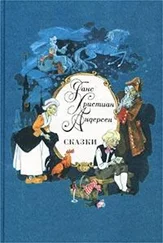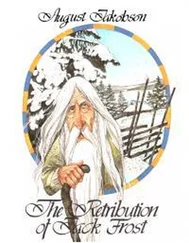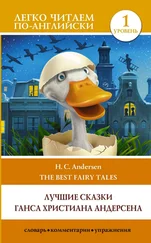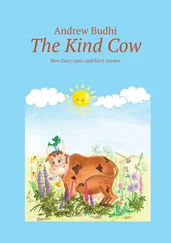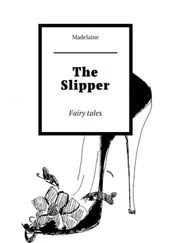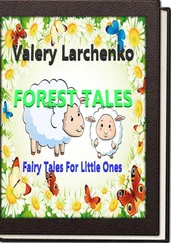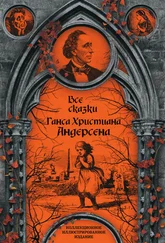Ганс Андерсен - Fairy Tales
Здесь есть возможность читать онлайн «Ганс Андерсен - Fairy Tales» весь текст электронной книги совершенно бесплатно (целиком полную версию без сокращений). В некоторых случаях можно слушать аудио, скачать через торрент в формате fb2 и присутствует краткое содержание. Жанр: Старинная литература, на английском языке. Описание произведения, (предисловие) а так же отзывы посетителей доступны на портале библиотеки ЛибКат.
- Название:Fairy Tales
- Автор:
- Жанр:
- Год:неизвестен
- ISBN:нет данных
- Рейтинг книги:4 / 5. Голосов: 1
-
Избранное:Добавить в избранное
- Отзывы:
-
Ваша оценка:
- 80
- 1
- 2
- 3
- 4
- 5
Fairy Tales: краткое содержание, описание и аннотация
Предлагаем к чтению аннотацию, описание, краткое содержание или предисловие (зависит от того, что написал сам автор книги «Fairy Tales»). Если вы не нашли необходимую информацию о книге — напишите в комментариях, мы постараемся отыскать её.
Fairy Tales — читать онлайн бесплатно полную книгу (весь текст) целиком
Ниже представлен текст книги, разбитый по страницам. Система сохранения места последней прочитанной страницы, позволяет с удобством читать онлайн бесплатно книгу «Fairy Tales», без необходимости каждый раз заново искать на чём Вы остановились. Поставьте закладку, и сможете в любой момент перейти на страницу, на которой закончили чтение.
Интервал:
Закладка:
A week went by, and then another. During that time the cat had been in the room many times without scaring the bird, let alone harming it. Then something great occurred. It was in the afternoon. His parents and the other children were working, and Hans was quite alone. He had the fairy tale book in his hands and was reading about the fisherman’s wife, who had all her wishes fulfilled. 4She wanted to be King, and she became it. She wanted to be emperor, and she became it. But then she wanted to be God and so ended up in the muddy ditch, where she had come from. This story has nothing to do with the bird and the cat, but it happened to be the story he was reading when the event happened. He always remembered that.
The cage was standing on the bureau. The cat was standing on the floor staring hard with its yellow-green eyes at the bird. There was something in the cat’s face—as if it wanted to tell the bird, “How beautiful you are! I would really like to eat you !”
Hans understood this. He could read it in the cat’s face.
“Scram, cat!” he shouted. “Get out of here!”
It was as if the cat was readying itself to spring.
Hans couldn’t reach it. He had nothing to throw at it except his dearest treasure, the fairy tale book. He threw it, but the cover was loose and flew to one side, and the book itself with all the pages flew to the other side. The cat slowly retreated a little bit and looked at Hans, as if it wanted to say: “Don’t involve yourself in this matter, little Hans. I can walk, and I can spring, and you can do neither.”
Hans kept his eye on the cat and was very uneasy. The bird became uneasy too. There was no person to call upon, and it was as if the cat knew this. It once again readied itself to spring. Hans could use his hands, and he waved his bedspread, but the cat didn’t care about the bedspread and when this too was thrown at it, to no avail, it leaped up on the chair and then into the windowsill, where it was closer to the bird.
Hans sensed the warm blood flowing in his veins, but he didn’t think about that. He only thought about the cat and the bird. He couldn’t get out of bed, couldn’t stand on his legs, much less walk. It was as if his heart turned over in his chest when he saw the cat jump from the window right onto the bureau and push the cage so it tipped over. The bird was fluttering around confusedly in there.
Hans gave a cry. His body jerked, and without thinking, he sprang from the bed, towards the chest of drawers. He threw the cat down and grasped the cage firmly. The bird was scared to death. With the cage in his hand he ran out the door and onto the road.
The tears were streaming down his face. He shouted for joy and screamed loudly, “I can walk! I can walk!”
He had regained the use of his limbs. Such things can happen, and it happened to him.
The schoolteacher lived close by, and the boy came running in to him in his bare feet, wearing only his shirt and bed jacket and carrying the bird in the cage.
“I can walk!” he shouted. “Lord, my God!” and he sobbed tearfully from pure joy.
And there was joy in the home of Garden-Ole and Garden-Kirsten. “We’ll never see a happier day!” they both said.
Hans was summoned to the manor house. He hadn’t walked that way for many years. It was as if the trees and hazelnut bushes that he knew so well nodded to him and said, “Hello, Hans. Welcome back out here.” The sun shone into his face and right into his heart.
At the manor the young, kind master and mistress had him sit by them, and looked as happy as if he were one of their own family.
Happiest of all was the mistress, who had given him the book of fairy tales, and the little songbird. It was, true enough, dead now. It had died of fright, but in a way it had been the means to his recovery, and the book had been an awakening for him and his parents. He still had it, and he would keep it and read it, no matter how old he became. And now he could also be useful to them at home. He would learn a trade, preferably become a bookbinder, “because,” he said, “then I can read all the new books.”
In the afternoon the mistress summoned Hans’ parents. She and her husband had talked about Hans. He was a good and clever boy, had a love of reading and good aptitude. Our Lord always approves a worthy cause.
That evening the parents came home happy from the manor, especially Kirsten, but the next week she cried because little Hans was going away. He had new clothes and was a good boy, but now he was going over the sea, far away, to go to school, a classical education. It would be many years before they would see him again.
He didn’t take the book of fairy tales along with him. His parents wanted it as a keepsake. And father often read it, but only the two stories that he knew.
And they received letters from Hans, one happier than the next. He lived with nice people in good circumstances, but the very best thing was going to school. There was so much to learn and know. He wanted only to live to be a hundred and become a schoolteacher sometime.
“If we could live to see that!” said his parents, and they held each other’s hands, as if they were at communion.
“Think what’s happened to Hans,” said Ole. “It shows that our Lord also thinks of poor people’s children. And that it happened to a cripple! It’s just like something Hans could read to us from his book of fairy tales!”
NOTES
1 The second stanza of H. A. Brorson’s hymn “Arise All Things That God Has Made” (Op! al den ting, som Gud har gjort) . This translation is by Anton M. Andersen from the Hymnal for Church and Home (fourth edition), published in 1849 by the Lutheran Publishing House in Blair, Nebraska. Here the word Andersen translated as “leaflet” appears as “nettle.”
2 A fairy tale by Madame Leprince de Beaumont that Andersen could have known from Christian Molbech’s Udvalgte Eventyr og Folkedigtninger from 1843, published under the title “Den nysgierrige Kone” (“The Curious Wife”).
3 Andersen may have known this motif from A. F. E. Langbein’s poem Das Hemd des Glücklichen (The Shirt of the Happy [One]) ; 1805), which appeared in Neue Gedichte (1812), according to Poul Høybye.
4 This refers to the common fairy tale The Fisherman and His Wife, found in the collections made by the Brothers Grimm.
FOLK TALES
THE TINDERBOX
A SOLDIER CAME MARCHING along the road: One, two! One, two! He had his knapsack on his back and a sword by his side, for he had been to war, and now he was on his way home. As he was striding along the road, he met an old hag. She was so disgusting that her lower lip hung down on her chest. “Good evening, soldier,” she said. “What a handsome sword and big knapsack you have! You’re a real soldier! And now you’re going to get as much money as you could ever want.”
“Thanks very much, old hag,” the soldier replied.
“Do you see that big tree?” asked the hag, and pointed at a tree beside them. “It’s completely hollow inside. Climb up to the top, and you’ll see a hole that you can slide through. I want you to go deep down inside the tree, and I’ll tie a rope around your waist so that I can pull you up when you call me.”
“And what should I do down in the tree?” asked the soldier.
“Get money!” said the hag, “Listen, when you reach the bottom of the tree, you’ll be in a big passage. It will be quite bright there because there are over a hundred burning lamps. You’ll see three doors, and you can open them because the keys are in the locks. When you go into the first room, you’ll see a large chest in the middle of the floor with a dog sitting on top of it. He has eyes as big as a pair of teacups, but don’t worry about that. I’ll give you my blue-checkered apron that you can spread out on the floor, but move quickly, take the dog, and set him on the apron. Then open the chest and take as many coins as you want. They’re all made of copper, but if you would rather have silver, go into the next room where you’ll see a dog with eyes as big as a mill wheel, but don’t worry about that. Set him on my apron and take the money! On the other hand, if you want gold, you can have that too, and as much as you can carry, if you go into the third room. But the dog that is sitting on the money chest in there has two eyes, each as big as the Round Tower, 1and that’s quite a dog, I can tell you, but don’t worry about it! Just set him on my apron, and he won’t do anything to you, so you can take as much gold as you want from the chest.”
Читать дальшеИнтервал:
Закладка:
Похожие книги на «Fairy Tales»
Представляем Вашему вниманию похожие книги на «Fairy Tales» списком для выбора. Мы отобрали схожую по названию и смыслу литературу в надежде предоставить читателям больше вариантов отыскать новые, интересные, ещё непрочитанные произведения.
Обсуждение, отзывы о книге «Fairy Tales» и просто собственные мнения читателей. Оставьте ваши комментарии, напишите, что Вы думаете о произведении, его смысле или главных героях. Укажите что конкретно понравилось, а что нет, и почему Вы так считаете.

![Ганс Андерсен - Ганс Чурбан[другой перевод]](/books/95480/gans-andersen-gans-churban-drugoj-perevod-thumb.webp)
